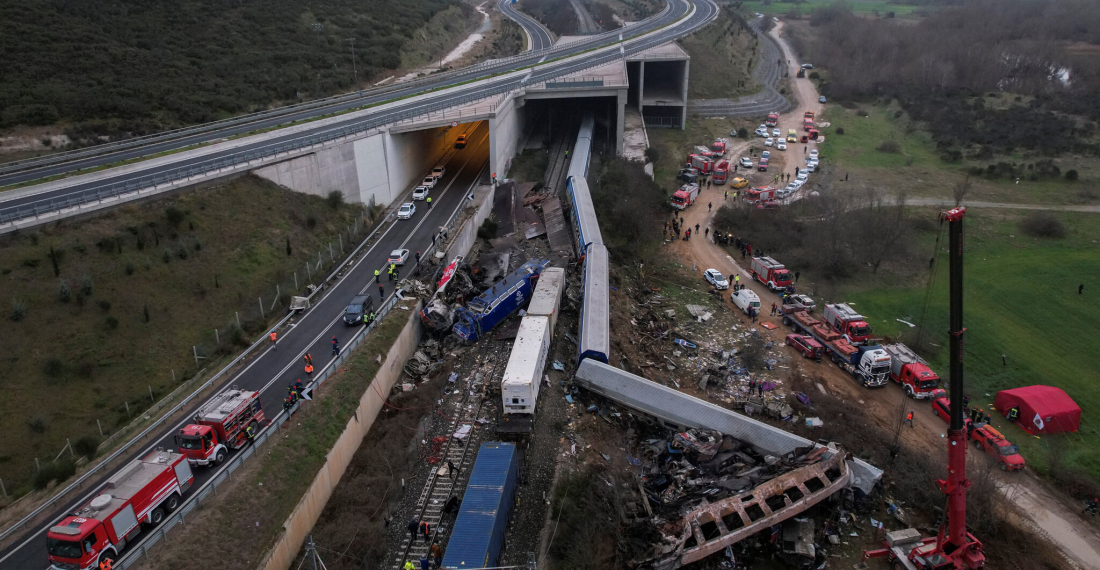A passenger train and a freight train have collided near the city of Larissa in northern Greece on the evening of Tuesday (28 February), killing at least 36 people and injuring at least 66, six of whom are in intensive care.
It is not yet known what caused the crash, and rescuers were working through the night to try and free survivors. The passenger train has been said to have been carrying some 350 people when it collided with the freight train.
Speaking on state television, Costas Agorastos, the regional governor of the Thessaly region, said the impact was “very powerful”.
“The front section of the train was smashed," he said. "We’re getting cranes to come in and special lifting equipment to clear the debris and lift the rail cars. There’s debris flung all around the crash site.”
"Then there was panic...for ten, fifteen seconds it was chaos"
Speaking to Reuters news agency, passenger Stergios Minenis said: "We heard a big bang...It was a nightmarish ten seconds. We were turning over in the carriage until we fell on our sides and until the commotion stopped."
"Then there was panic. Cables, fire. The fire was immediate. As we were turning over we were being burned. Fire was right and left. For ten, fifteen seconds it was chaos.
"Tumbling over, fires, cables hanging, broken windows, people screaming, people trapped. It was two metres high from where we jumped to leave [the train], and beneath there was broken iron debris, but what could we do?"
Timeline
The passenger train departed Athens at 19.30 local time, heading for Thessaloniki. The northeastern city has a sizeable student population, and it's believed many would have been returning there after a holiday for Greek Orthodox lent.
The freight train was heading from Thessaloniki to Larissa. The fire brigade have said they received calls of a crash shortly before midnight.
source: commonspace.eu with BBC
photo: Reuters







